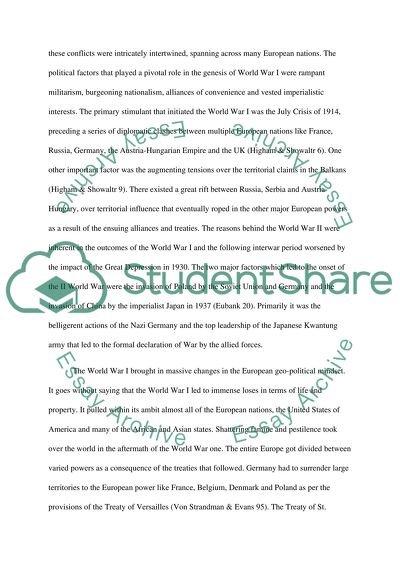Cite this document
(“World War I and World War II Essay Example | Topics and Well Written Essays - 1250 words”, n.d.)
Retrieved de https://studentshare.org/history/1440309-world-war-i-and-world-war-ii-essay
Retrieved de https://studentshare.org/history/1440309-world-war-i-and-world-war-ii-essay
(World War I and World War II Essay Example | Topics and Well Written Essays - 1250 Words)
https://studentshare.org/history/1440309-world-war-i-and-world-war-ii-essay.
https://studentshare.org/history/1440309-world-war-i-and-world-war-ii-essay.
“World War I and World War II Essay Example | Topics and Well Written Essays - 1250 Words”, n.d. https://studentshare.org/history/1440309-world-war-i-and-world-war-ii-essay.


